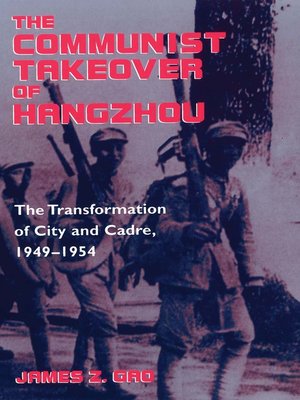The Communist Takeover of Hangzhou
ebook ∣ The Transformation of City and Cadre, 1949–1954 · Studies of the Weatherhead East Asian Institute, Columbia University
By James Z. Gao

Sign up to save your library
With an OverDrive account, you can save your favorite libraries for at-a-glance information about availability. Find out more about OverDrive accounts.
Find this title in Libby, the library reading app by OverDrive.



Search for a digital library with this title
Title found at these libraries:
| Library Name | Distance |
|---|---|
| Loading... |
Existing literature on the Chinese Revolution takes into account the influence of peasant society on Mao's ideas and policies but rarely discusses a reverse effect of comparable significance: namely, how peasant cadres were affected by the urban environment into which they moved. In this detailed examination of the cultural dimension of regime change in the early years of the Revolution, James Gao looks at how rural-based cadres changed and were changed by the urban culture that they were sent to dominate. He investigates how Communist cadres at the middle and lower levels left their familiar rural environment to take over the city of Hangzhou and how they consolidated political control, established economic stability, developed institutional reforms, and created political rituals to transform the urban culture. His book analyzes the interplay between revolutionary and non-revolutionary culture with respect to the varying degrees with which they resisted and adapted to each other. It reveals the essential role of cultural identity in legitimizing the new regime and keeping its revolutionary ideal alive.







